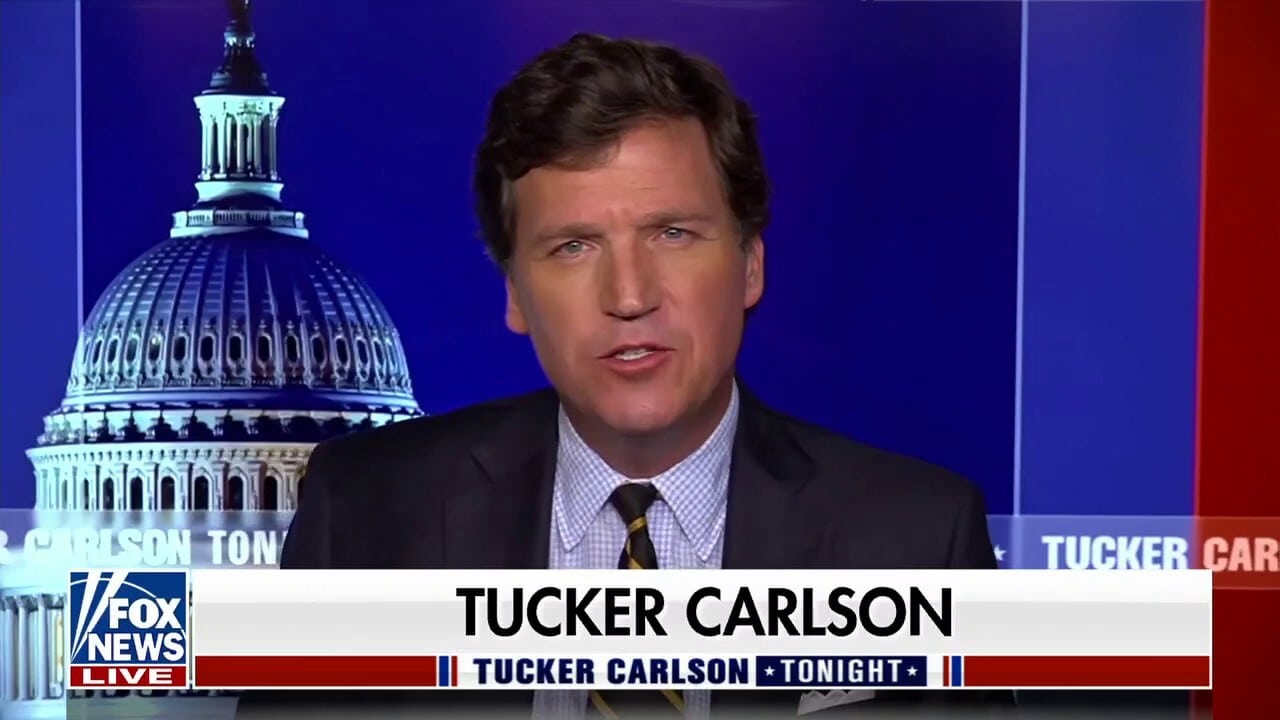About five years ago, I asked Tucker Carlson why his show was so popular and his most successful television venture yet.
I expected he would tell me about the great populist upheaval on the Right, the changes to the Republican Party brought about by then President Donald Trump, the perfect alignment of a man and his moment.
Instead Carlson told me, “I have worked at all the networks, so I know you can have an amazing show, and it doesn’t matter if nobody watches the network that carries it. Obviously, I think I am brilliant and handsome, but the real reason the show works is it’s the eight o’clock show at Fox.”
The answer wasn’t false modesty. Carlson had replaced Bill O’Reilly, then cable’s king of the eight o’clock hour. Fox survived and thrived. O’Reilly’s attempts to replicate his show on his own looked small and sad. The firing of Matt Lauer for sexual misconduct was no huge setback for “The Today Show.” By contrast, NBC’s attempted rebranding of Megyn Kelly, formerly of Fox, was a spectacular (if lucrative) flop.
It stood to reason, then, that networks might have more to do with the star power of their well-paid on-air talent than the personalities themselves.
Why Tucker Carlson Matters
Now that Carlson is out at Fox News, he will get to test that theory. He will certainly move on to other projects and someone else will fill his prime-time slot at his old network eventually. The proof will bein the pudding.
This is the era of podcasts and Joe Rogan, of star journalists receiving six-figure advances from Substack, and the increasing fragmentation of the media market.
Carlson was already the public face of a successful media outlet as a utility pundit at Fox and former host at several other networks comparable to, albeit smaller budget than, what Glenn Beck founded after his own primetime star turn. (For the record, I worked at the Daily Caller for nearly three years and found Carlson to be a kind and generous boss.)
Since then, Carlson’s connection with his audience has only deepened. Days before the news of his parting of ways with Fox broke, he had the audience at the Heritage Foundation’s 50th anniversary gala eating out of his hands. Anecdotally, one regularly encounters people who view him like a cross between William F. Buckley Jr. and Walter Cronkite, someone they trust.
Like Buckley, Carlson is a television personality, writer, institution builder, and nascent movement leader all rolled into one. He also played a key role in identifying and training a younger generation of conservative talent, as well as some who have achieved escape velocity from what they affectionately call the “right-wing ghetto.” But like Rush Limbaugh, Carlson is also an entertainer.
“O’Reilly[‘s] departure was a media eternity ago,” tweeted Saagar Enjetti, a fellow Daily Caller alum who went from The Hill to new media prominence. “Fox audience has aged significantly, they have no compelling bench, they’ve lost young demo, have less control over the right wing narrative than ever before and face massive competition both linear and online.”
Carlson has the potential to be a Rogan-like independent broadcaster, in an era where Buckley and Limbaugh are gone, Pat Buchanan is retired, and George Will is opposed to the populist currents on the Right.
Whether such a project can have the same reach remains to be seen. Beck has a large following he has been able to monetize, but there was more cross-pollination with the so-called mainstream media when he was on Fox. At the same time, it’s not clear that the cable news business model will forever be sustainable, appointment television is increasingly a thing of the past, and new vehicles for information dissemination are on the rise.
Carlson hosted “Crossfire” when that storied franchise was near the end of its run, appeared on PBS when its viewers demands for shows like “Firing Line” had diminished, and was on MSNBC (with Buchanan, Alan Keyes, and a then-conservative Joe Scarborough) right before that network made its hard left turn.
“Tucker Carlson Tonight” was a better fit for what was going on at the time of its launch than any of those previous programs. How dependent was it on Fox? Stay tuned.
W. James Antle III is the Washington Examiner’s politics editor. He was previously managing editor of the Daily Caller, associate editor of the American Spectator, and senior writer for the American Conservative. He is the author of Devouring Freedom: Can Big Government Ever Be Stopped? Antle is also a 19FortyFive Contributing Editor.

